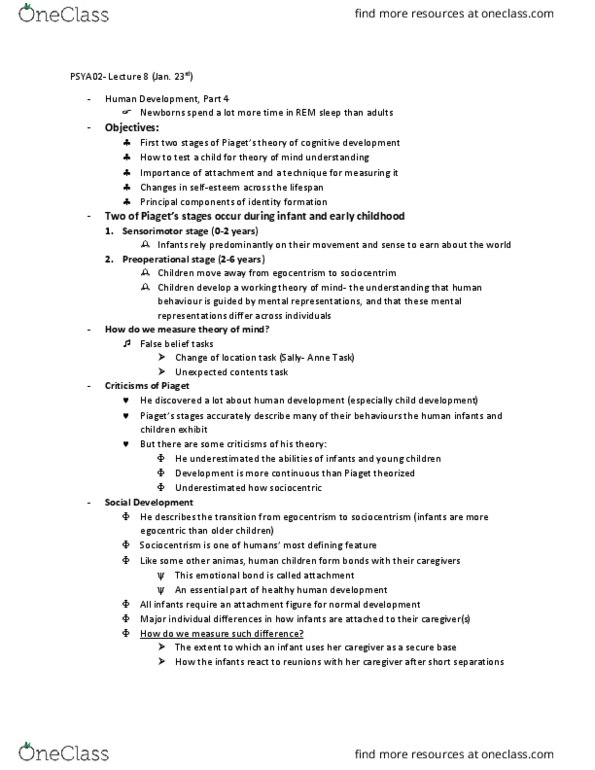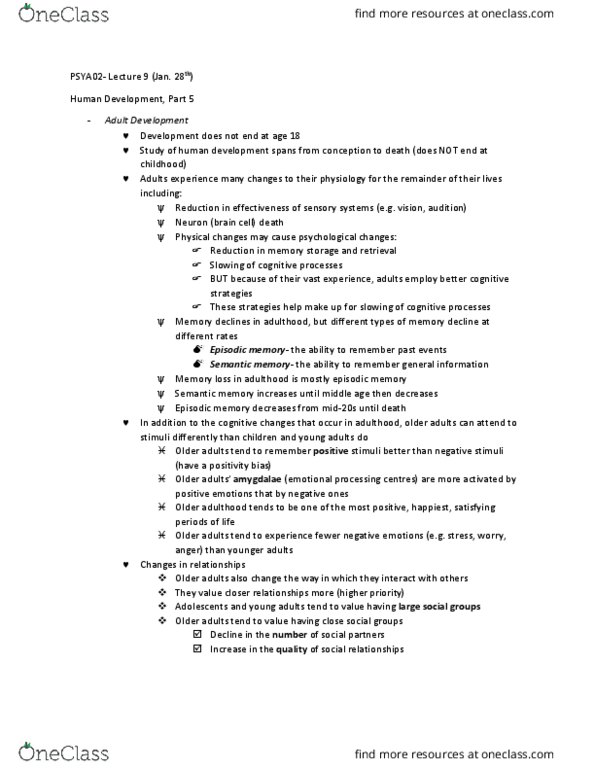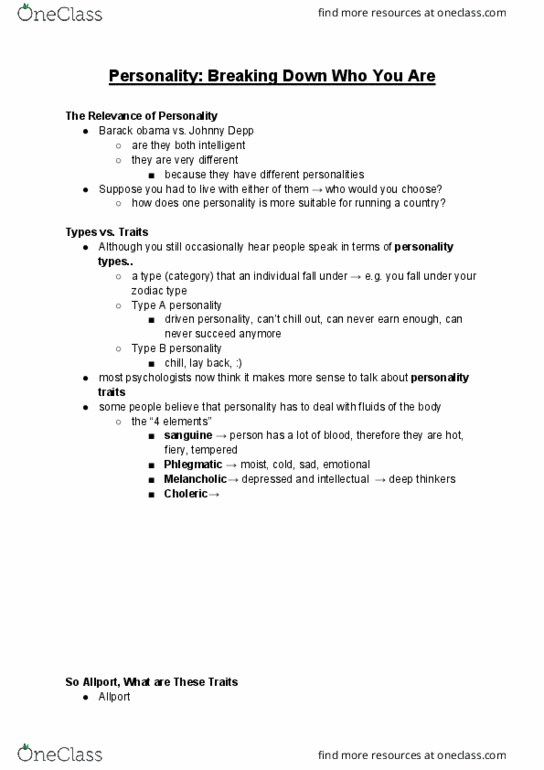PSYA02H3 Lecture 9: Human Development Part 5, Intelligence Part 1
PSYA02H3 verified notes
9/39View all
Document Summary
Development does not end at age 18. Study of human development spans from conception to death (does not end at childhood) Adults experience many changes to their physiology for the remainder of their lives including: Reduction in effectiveness of sensory systems (e. g. vision, audition) But because of their vast experience, adults employ better cognitive strategies. These strategies help make up for slowing of cognitive processes. Memory declines in adulthood, but different types of memory decline at different rates. Episodic memory- the ability to remember past events. Semantic memory- the ability to remember general information. Memory loss in adulthood is mostly episodic memory. Semantic memory increases until middle age then decreases. Episodic memory decreases from mid-20s until death. In addition to the cognitive changes that occur in adulthood, older adults can attend to stimuli differently than children and young adults do. Older adults tend to remember positive stimuli better than negative stimuli (have a positivity bias)





